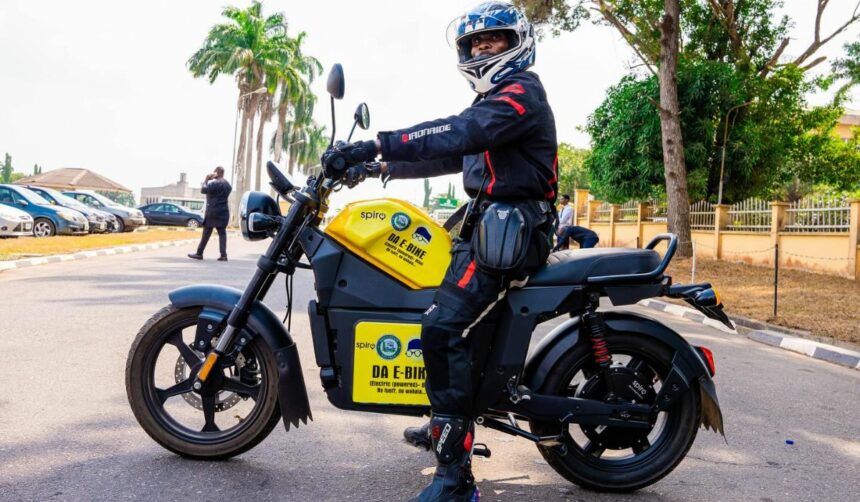To promote green alternatives and overcome regulatory hurdles, electric-scooter startup Spiro has partnered with the Ogun State government in Nigeria to introduce 250 stations for electric-battery-switching services.
The initiative aims to entice motorbike taxi operators in Nigeria, known for its struggles with regulatory challenges and bans on certain transportation services.
The stations, expected to be operational within the next six months, will allow motorbike taxi drivers to switch electric batteries conveniently.
Spiro, already operating in countries like Benin, Togo, Rwanda, and Kenya, is looking to expand its fleet of 12,000 electric bikes in Africa.
The move comes as the continent witnesses rising urbanization levels and a youthful population, offering growth opportunities for electric two-wheeler vehicles.
Kaushik Burman, the CEO of Spiro, expressed excitement about the launch in Ogun State, considering it a crucial step in the company’s ambitious plans to electrify Nigeria, Africa’s largest market.
Motorbike taxis serve as a primary form of last-mile transportation in many African cities, making the introduction of electric alternatives a significant development.
Despite the growth potential, regulatory uncertainty has posed challenges for motorbikes and three-wheeled rickshaws in Nigeria.
In 2021, Lagos State banned motorbike-taxi services, leading ride-hailing startups to shift towards providing delivery services for e-commerce companies.
Meanwhile, in the capital city, Abuja, the government is contemplating restrictions on rickshaws, known as Keke Napep, to address a kidnapping crisis.
However, removing a costly fuel subsidy in Nigeria presents an opportunity for the fledgling electric mobility sector.
With ambitions to achieve full conversion to electric vehicles by 2060, Nigeria aims to become carbon neutral, aligning with its energy transition plan.
”Spiro’s initiative in Ogun State represents a strategic move to contribute to the growth of electric transportation solutions in Nigeria and address environmental concerns,” Burman stated.










